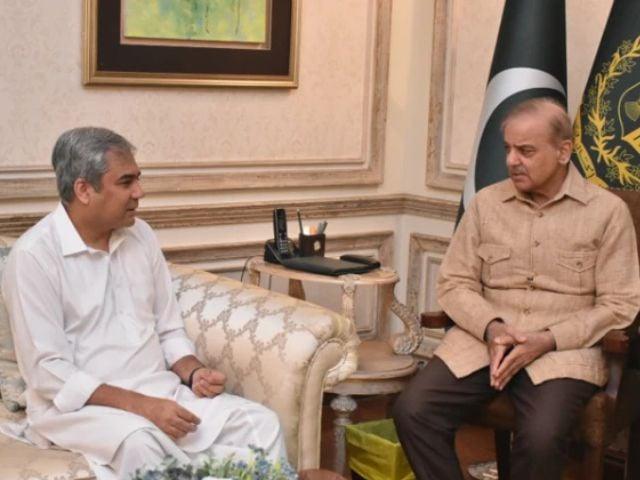Islamabad / Peshawar:
Eid holidays ending on Wednesday, the process of expulsion of all holders of citizen cards (ACC) of all foreigners and Afghans is likely to grow while the deadline for their voluntary departure has officially expired.
In this regard, the Minister of the Interior Mohin Raza Naqvi called Prime Minister Shehbaz Sharif on Wednesday and informed him of progress concerning the process of repatriating Afghan nationals.
According to official data, a total of 886,242 undocumented Afghan nationals left Pakistan on April 1, the repatriations continuing.
The authorities warned against strict legal action against those who have not left the deadline, strengthening the government’s commitment to apply immigration laws.
Pakistan had set a deadline of March 31 for all illegal residents, including holders of Afghan citizen cards, to voluntarily return to their country of origin.
However, with the deadline now passed, the government has reported the start of forced moves and legal measures against those who still live in the country without appropriate documentation.
The deadline for their return ended on March 31, but the repatriation process could not officially start because of the Eid holidays.
There are 43 camps for Afghan refugees in Khyber-Pakhtunkhwa. The number of Afghan nationals in Pakistan with registration proof cards (POR) is 1,344,584. In Khyber-Pakhtunkhwa, the total number of registered Afghan refugees is 709,278, including 344,908 resident in camps.
The number of Afghan refugees with Afghan citizen cards has been 307,647. Since 2013, a total of 465,000 Afghan refugees have returned via the Torkham border.
In Balutchistan, 317,000 Afghan refugees are recorded, while the Punjab has 196,000, the Sindh has 74,117, Islamabad has 42,718 and Azad Cachemire has 4,448 Afghan refugees residing.
The Afghan temporary government under the Taliban had called on Islamabad on Tuesday not to start the deportation of Afghan nationals.
“In particular, Pakistan has announced a renewed repression, declaring that it would make individuals without legal residence permit, even if valid card holders are faced with uncertainty,” said a statement from the Afghan government on April 1, according to the official Afghan Bakhtar news agency.
The mass expulsion reader launched last year, is part of Pakistan’s wider strategy to regulate undocumented migration and respond to growing security problems.
Meanwhile, law enforcement organizations in twin cities were invited to apprehend and expel the Afghan nationals involved in criminal activities, as well as their families.
In Rawalpindi, the police chief ordered the superintendents of the Rawal, Potohar and Saddar divisions to bring legal action against Afghan undertaken without papers residing or working in the district.
The authorities were explicitly responsible for holding the Afghans involved in criminal activities. However, the directive also calls for a broader punitive approach, stipulating that if a family member is found guilty of a crime, the whole family will face expulsion.
Following the orders of the police officer of the city of Rawalpindi (CPO), all the officers of the house (SHO) were responsible for identifying and holding Afghan nationals living in their respective jurisdictions and their families.
Meanwhile, the United Nations High Commissioner for Refugees (UNHCR) recognized Pakistan hospitality towards refugees, while stressing that a lasting solution requires “we all work together – Afghanistan, Pakistan and the international community”.
In her message from Eid, the Pakistan representative of UNHCR, Philippa Candler, reiterated that Pakistan could not assume the responsibility to welcome Afghan refugees indefinitely.
She called for a global approach to meet both immediate and long-term challenges encountered by Pakistan, Afghanistan and Afghan refugees themselves.
Candler also underlined the crucial role of the international community, stressing the need for continuous humanitarian aid, not only for short -term help, but also to support long -term development initiatives.




